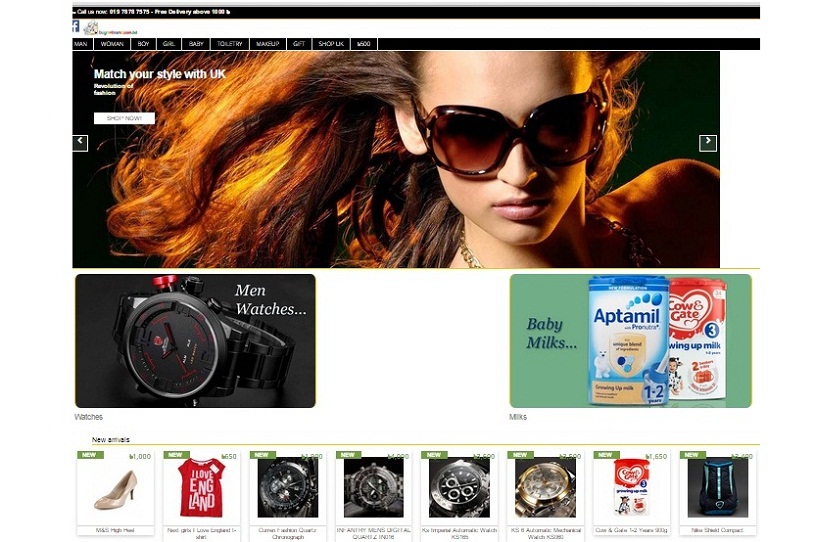
There is a demand for original branded products that are not available in Bangladesh. There are companies that take advantage of this gap by selling fake branded products. BuyMeBrand a local ecommerce startup aims to make this tick. They import original products of locally unavailable brands with market demand and sell those products online.
There are questions about the business model, scalability, and more of BuyMeBrand but one thing that intrigues us is how they have evolved their business over time and turned it into an ecommerce business. This story tries to shed light on their 'one step at a time' approach to building a company.
After coming back from the UK, Maksud, one of the three cofounders of the company, saw there is a huge demand for original branded products that are unavailable in Dhaka, that’s when the idea of starting BuyMeBrand came to his mind. Once he saw the opportunity and decided that he would do something with it, he contacted two of his Bangladeshi British friends living in the UK and pitched the idea. After much discussion, they also agreed to give it a try.
Three of them put together a small capital and started to sell original branded products in Dhaka. “Primarily we did not start as an ecommerce platform, says Maksud, instead we started to sell our products to few retailers at wholesale prices, and then we started to sell to customers by using the personal network.”
Saying goes, ‘paying customer is the best investor’, and it only makes sense when you get to start a real business. It is difficult to raise money all over the world. The number of startups that raise funds is no more than 1%. In Bangladesh, it is even harder. We don’t have many angels, a solid funding mechanism for startups, and a mature eco-system. Hence, whoever aims to start their business after being funded by an angel investor or VC, they better go home. Maksud and his team did a wonderful job in terms of how they have built the business over time and validated their assumptions and created a customer base before going big.
“We started by taking pre-order. We started with taking part of the payment advance from our customers and then we import the products and deliver to them, says Maksud, this was because we import pretty expensive products and once someone orders it and declines to buy it later; it becomes difficult for us to maintain the inventory. So by taking the advance, we made sure, the customer is a sure shot.”
This is a pretty mature strategy once you know there is a demand for your product, and also you are starting with limited cash. Furthermore, it validates whether people really want your products.
However, it was not easy for the BuyMeBrand team to do this sort of thing. “There is a serious trust problem in this country, says Maksud, since shit happens people seldom want to believe”. BuyMeBrand went through the same problem and there is no shortcut out of this problem. You build trust over time. Maksud and his team remained patient and maintained a very good relationship with its customers.
![This Ecommerce Startup Delivers Original Branded Products To Your Doorstep But What Makes It Interesting Is Not Ecommerce 2 Khondoker Saker, Nur Hossain & Maksud [from left to right]](http://futurestartup.com/wp-content/uploads/2015/05/BuyMeBrand-image.jpg)
This is where things get interesting. Once BuyMeBrand team sees potential in the sector to make it big, they took time to think and to find a way out to scale their business. That’s how ecommerce came into existence. Today the company sells authentic products online and delivers them to the customers. “We have an apparent advantage over many ecommerce startups since we started ecommerce with already an existing base of clients, says Maksud, furthermore, the problem with trust is no more there for us.”
BuyMeBrand is having good traction. In near future, the startup aims to get into retail along with ecommerce to give its customers a perfect shopping experience.
“From the start, we wanted to keep things small and under control, says Maksud, this was because I started a business before and failed. I know things seldom go according to plan”.
Testing water is critical in most cases but we seldom take time to do so. There are a hundred ways of doing a thing and the problem is an optimization problem.
Image by BuyMeBrand
